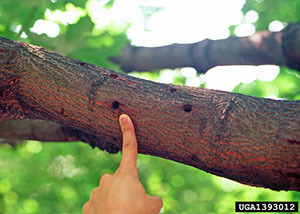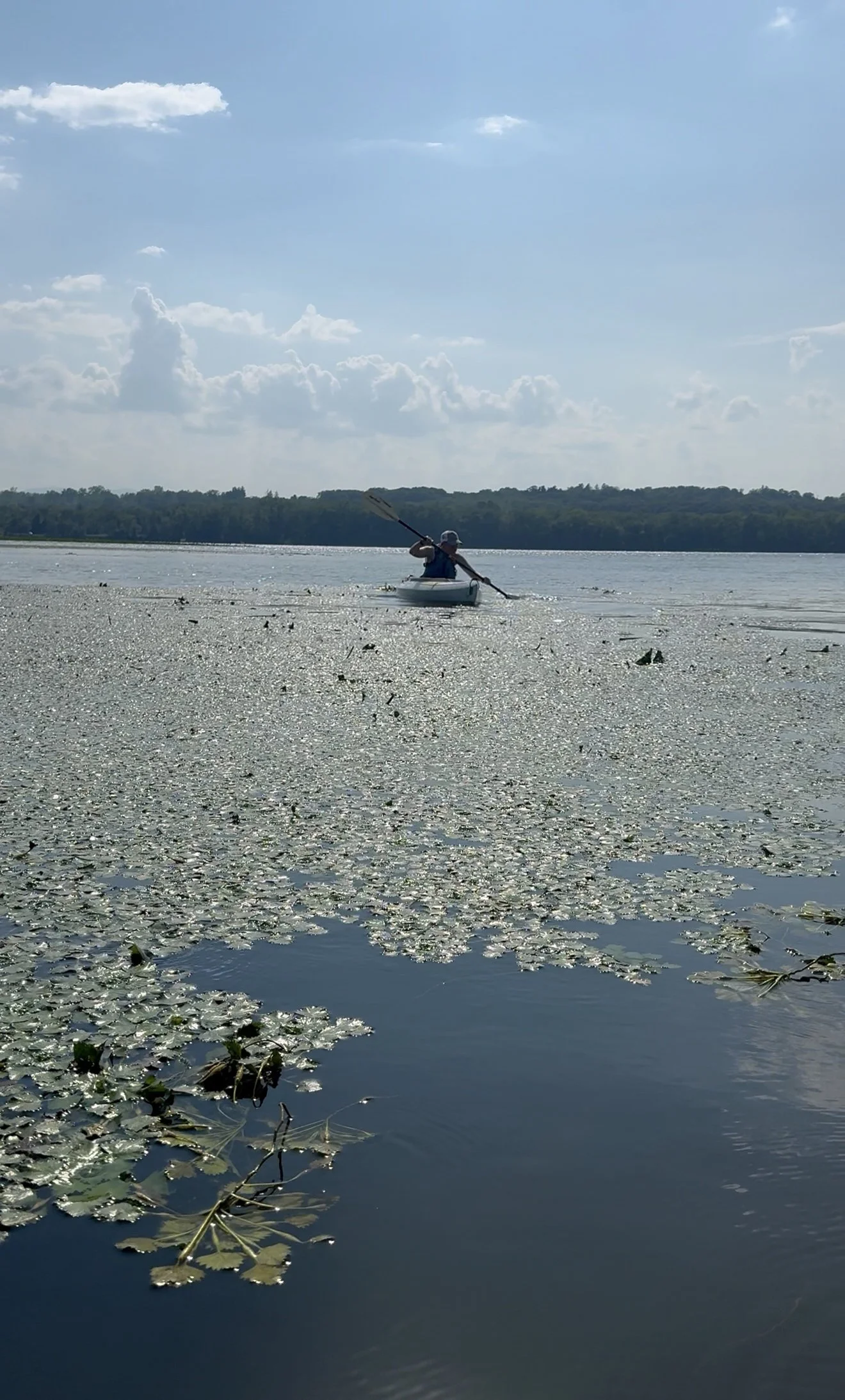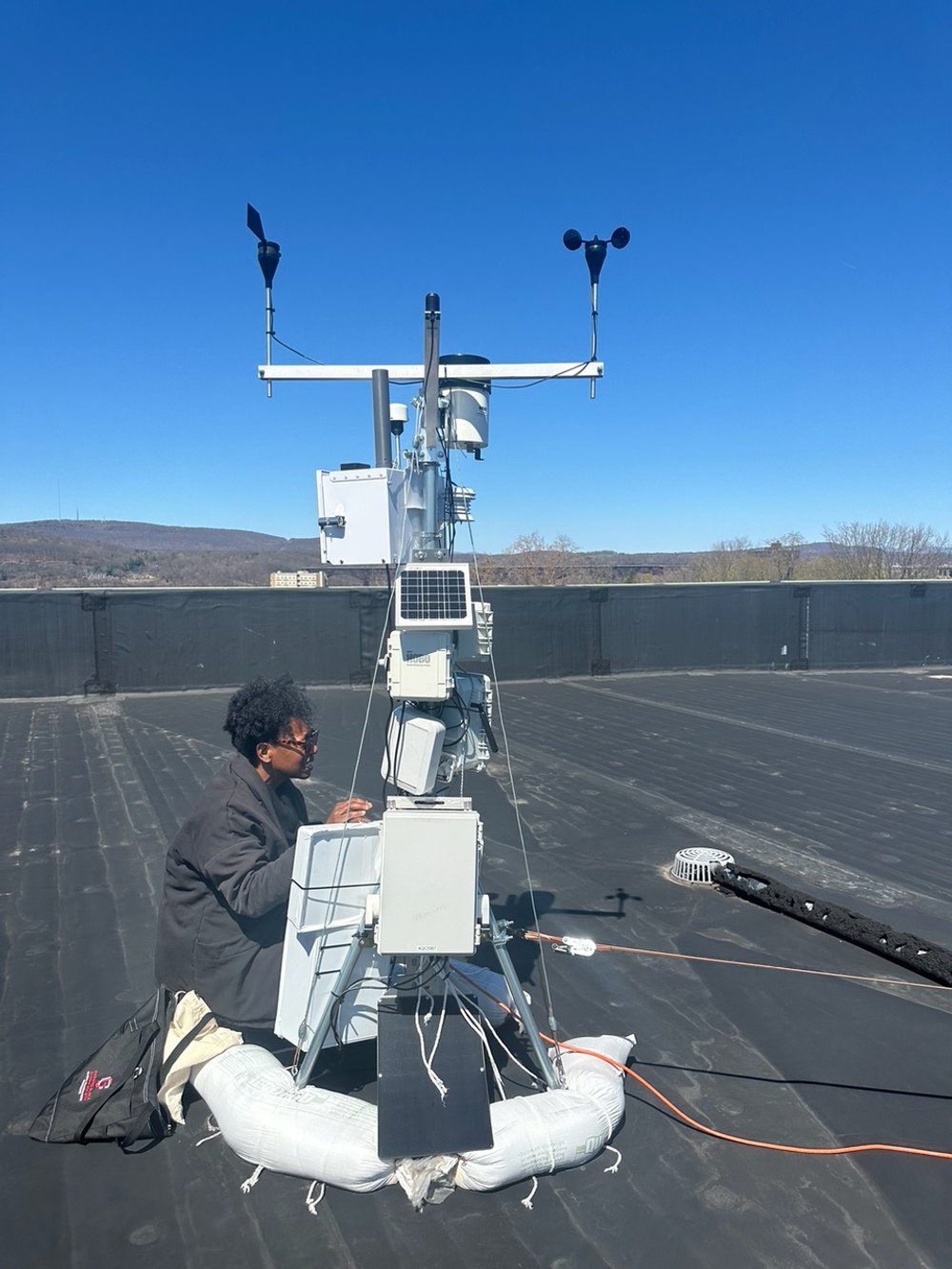Have you seen this insect in your pool? It's invasive – let the DEC know
This time of year, invasive Asian Longhorned Beetles (ALB) begin to emerge as adults and cause serious damage to trees across the country. The New York State Department of Environmental Conservation is asking pool owners to check their filters for ALBs.
The wood boring beetle is native to Asia, but they were accidentally introduced to the United States through wood-packing materials. Maple trees are a preferred host to these pests, in addition to other hardwoods including birch, and willows, among others.
ALBs are about 1.5 inches long, black with white spots, and have long black and white antennae.They leave perfectly round exit holes (about the size of a dime) in branches and tree trunks leaving behind sawdust-like material called frass on branches and around the base of the tree.
The exit hole left by Asian Longhorned Beetles
If you find one, save the insect by placing it in a plastic bag and putting in the freezer. Send an email to foresthealth@dec.ny.gov with the subject heading "ALB Pool Survey,” or text an image to 518-810-1609, and type "ALB Pool Survey" in the body of the text, or mail a printed image to the Forest Health Diagnostic Lab at 108 Game Farm Road, Delmar, NY 12054.
And, even if you don’t have a pool, you can still keep an eye out for ALB damage on trees, such as exit holes, accumulation of coarse sawdust, pits in the bark, and oozing sap.












